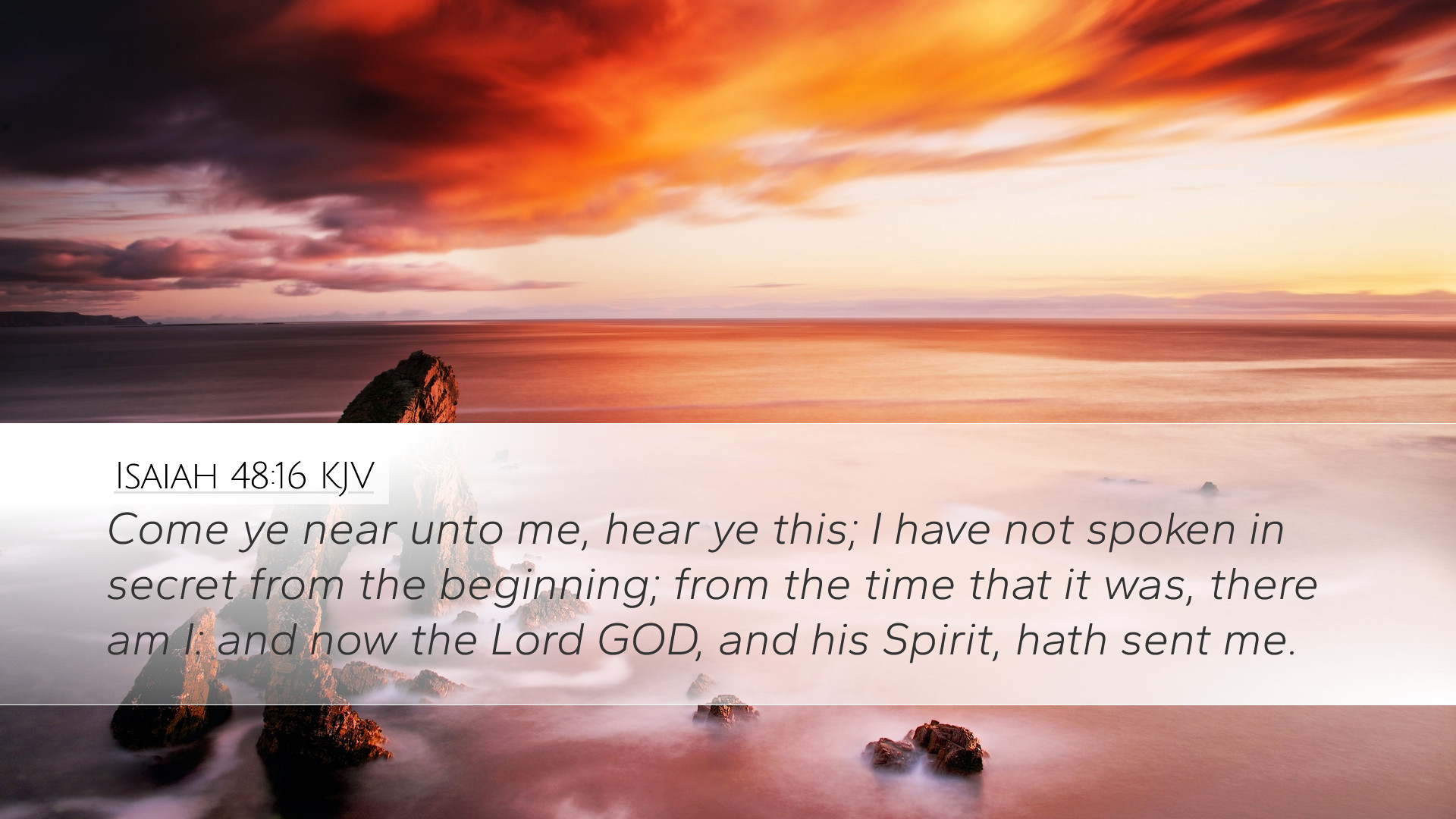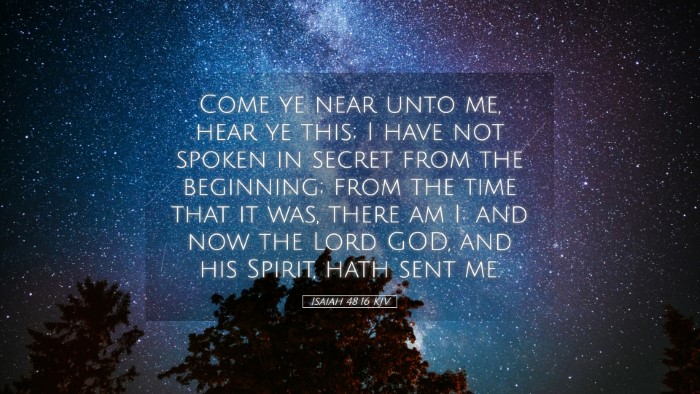Commentary on Isaiah 48:16
Isaiah 48:16 declares:
"Come near to me, hear this: From the beginning I have not spoken in secret; from the time it came to be, I have been there." (ESV)
Overview
This verse encapsulates God's invitation for His people to listen and recognize His sovereignty and presence throughout history. In this passage, God articulates His ongoing revelation and unceasing activity among His chosen people. To fully understand this profound declaration, we can draw insights from the writings of prominent theologians and commentators.
Contextual Background
Isaiah's prophecy spans a critical transition in Israel's history, addressing the exiles in Babylon and calling them to return to Jerusalem. He speaks to a people who have long endured suffering and disillusionment. In this verse, God emphasizes His role as the ever-present guide and declarer of truth.
Audience and Purpose
Isaiah speaks directly to a disheartened audience, urging them to regain their focus on God. The message serves both to reassure His people of His consistent faithfulness and to challenge their posture of doubt and skepticism. God’s words aim to revive the faith of the exiled Israelites.
The Divine Call to Hear
The phrase "Come near to me, hear this" indicates an urgent plea from God for His people to pay attention. Here, Isaiah represents God's prophetic voice, emphasizing the importance of communion with God through attentive listening.
Matthew Henry’s Insights
According to Matthew Henry, this expression denotes a relational aspect of God’s invitation. He suggests that God longs for an intimate relationship with His people, urging them to draw near. Henry also points to the significance of hearing, stating that true faith is birthed from attentiveness to God’s voice.
Albert Barnes on Revelation
Albert Barnes highlights the declaration of God’s speaking "from the beginning." He underscores that God's communication is not sporadic or secretive but is instead consistent and clear. This reflects God's desire to reveal His will and purpose openly, reinforcing His transparency and accessibility to humanity.
The Ever-Present God
"From the time it came to be, I have been there," emphasizes God's eternal presence. This assurance reminds readers that God does not abandon His creation but remains actively involved throughout history.
Adam Clarke’s Commentary
Adam Clarke explores the notion of God’s presence and omniscience. He points out that God's existence alongside the unfolding of life’s events is a testament to His sovereignty. Clarke asserts that God sees every nuance of human experience, offering reassurance that He is not absent in moments of despair.
Implications for the Believer
Isaiah 48:16 carries profound implications for believers today. It serves as a reminder of the importance of remaining attuned to God’s voice amidst life's complexities. The call to “hear” is timeless, urging individuals to approach God with openness and expectancy.
Faith and Trust
For pastors and theologians, this passage reinforces the themes of faith and dependence on God's promises. The faithful serving must encourage congregations to seek God's voice actively in prayer and worship. Like the exiled Israelites, believers can find hope and direction by remembering God’s past faithfulness.
The Role of Prophecy
This verse also highlights the importance of prophecy in the life of the church. Understanding that God has spoken clearly and audibly throughout history enhances the understanding of the church’s mission to proclaim the Gospel confidently.
Conclusion
Isaiah 48:16 is a profound reminder of God’s call to His people to listen and recognize His active role in their lives. The insights from Matthew Henry, Albert Barnes, and Adam Clarke provide a layered understanding of the text, illustrating the richness of God’s presence and the necessity of engaging with His word. As believers respond to God's invitation, they are assured of His eternal promise to be present and guiding throughout their journeys.


